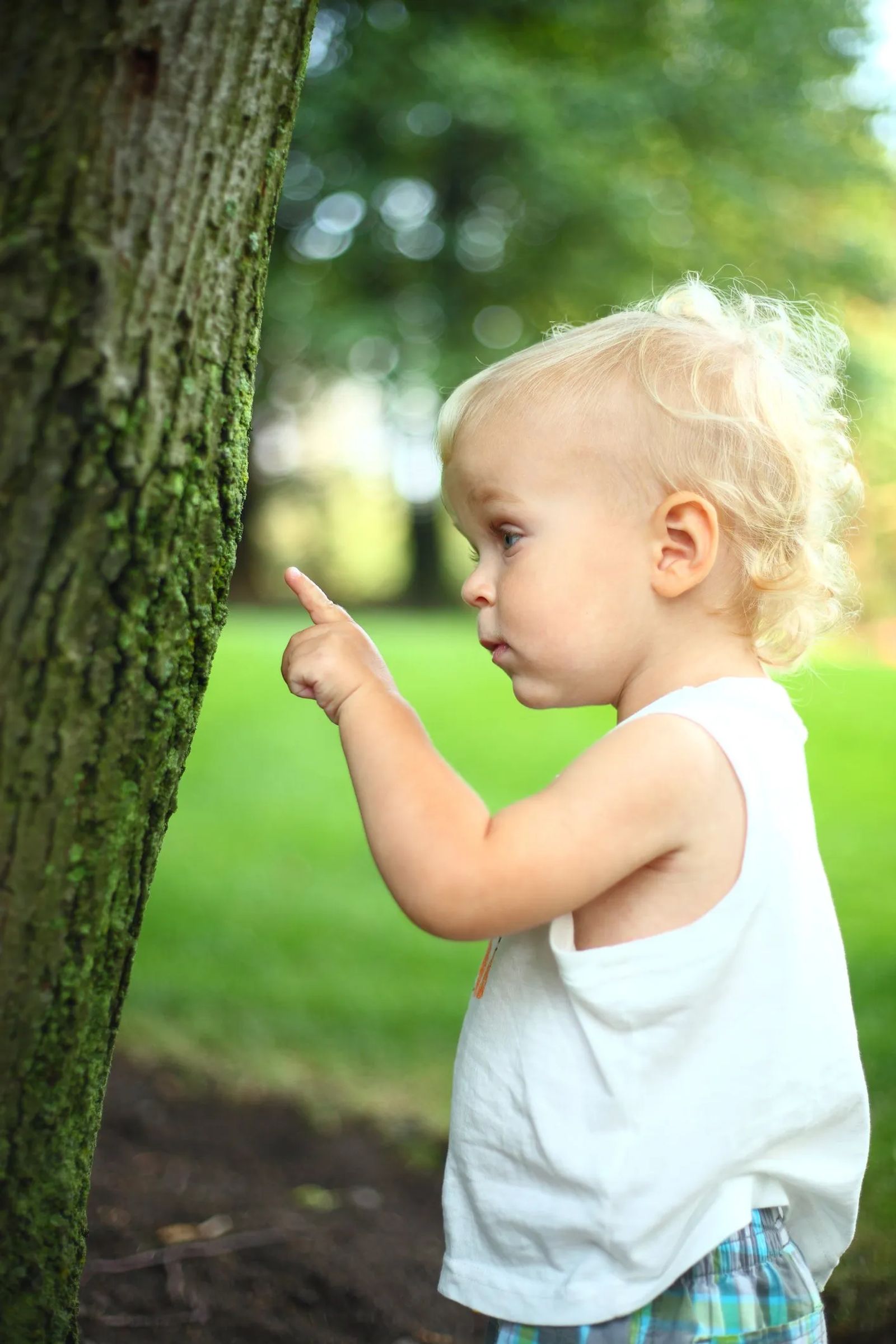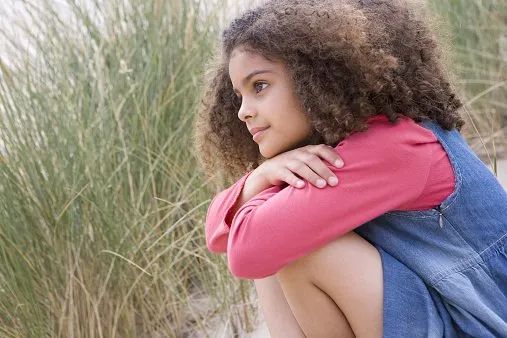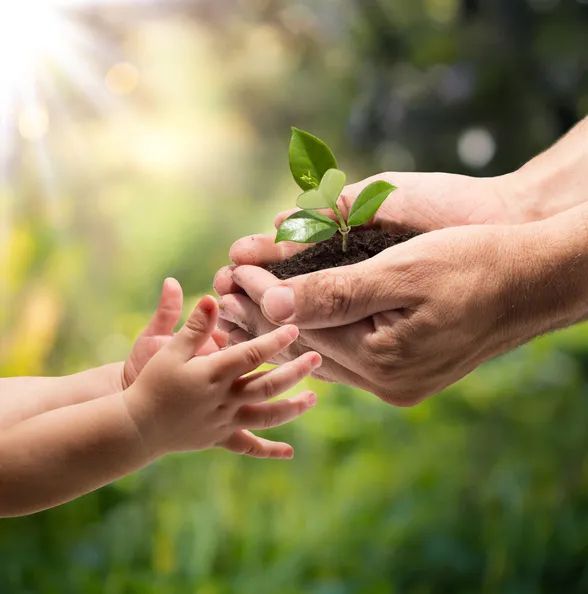Why Connect with Nature?
Nowadays, children are spending more and more time indoors...think of all the developmental opportunities they’re missing!
What can your child learn from nature? As your child observes the way leaves move and sway in the wind, he is developing his vision. As your child hears the many layers of sound in nature, her hearing is stimulated. As your child smells the damp earth after the rain or fragrant spring flowers, his sense of smell awakens. The feel of sand to bare feet or a cooling breeze in the heat of summer, the taste of sun-ripened fruit or a sprig of fresh mint, all of these sensations play a significant part in the child’s development through the senses.

"The senses, being the explorers of the world, open the way to knowledge." ~ Maria Montessori
Nature provides these experiences with such abundance that we may take it all for granted. Don’t forget the importance of nature to your child’s development. Nowadays, children are spending more and more time indoors, exposed only to the same sensory stimuli morning, noon and night. Think of all the developmental opportunities they’re missing! Children, especially those under three years of age, need time and opportunity to connect with nature. Of course, this first requires a good role model…yes, you! Ask yourself a few key questions:
• What, if any, is your relationship with nature?
• Do you take the time to enjoy nature?
• Do you spend time outdoors on a regular basis?
• Do you notice the little everyday “miracles” of nature?
• Do you talk with your child (ren) about what you see, smell, feel, taste, and hear when you are outdoors?
• Do you still feel a sense of wonder or astonishment in nature?
For your child to be able to connect with nature, you--the parent--must allow yourself to connect (or reconnect) then teach your child to do the same.
Think of different outdoor activities you can do with your child. They don’t have to be anything extravagant: collect leaves, rocks, or pine cones. Sit quietly for a moment and listen, then try to name the sounds you hear. Then get up and move: walk, crawl, roll, jump, push, pull, toss a ball, climb a tree, or ride a bike.

"When children come into contact with nature, they reveal their strength." ~ Maria Montessori
Remember that your children are developing their senses, coordination, and more through interaction with nature. Don’t postpone when the weather is less than perfect. Teach your children that when you dress appropriately, rain and snow can be fun!
"Let the children be free; encourage them; let them run outside when it is raining; let them remove their shoes when they find a puddle of water; and when the grass of the meadows is wet with dew, let them run on it and trample it with their bare feet; let them rest peacefully when a tree invites them to sleep beneath its shade; let them shout and laugh when the sun wakes them in the morning." ~ Maria Montessori
You can also teach your children to care for nature: plant a garden, water and tend to the plants. Build bird feeders and keep them filled with seeds then watch and listen to the birds. Here are a few more sensory experiences that you might find outdoors: build sand castles, make mud cakes, splash in water, smell crushed leaves, make flower chains, watch cloud formations, fly a kite…

"Children have an anxious concern for living beings, and the satisfaction of this instinct fills them with delight. It is therefore easy to interest them in taking care of plants and especially of animals. Nothing awakens foresight in a small child such as this. When he knows that animals have need of him, that little plants will dry up if he does not water them, he binds together with a new thread of love today’s passing moments with those of the morrow.” ~ Maria Montessori
With the help of their absorbent mind, the child will easily pick up on the many scientific principles hidden in nature…principles that simply cannot be learned through a screen or any other artificial source. If you want the best future for your children, give them the best opportunities to connect with nature.
"The child who has felt a strong love for his surroundings and for all living creatures, who has discovered joy and enthusiasm in work, gives us reason to hope that humanity can develop in a new direction." ~ Maria Montessori
To learn more about your child's development, please enjoy our webinar...
Description
Join our guest, Dr. Jeff Feenstra, D.C., father of three children, six, four and two, in a discussion of what the body needs to grow, and what it does not need.
We will explore the importance of how movement drives the development of the frontal lobe of the brain, which allows the child to develop executive functions such as planning and the ability to inhibit inappropriate behavior. We will also examine primal movement, the fitness world’s newest discovery!
Presenters:
Dr. Jeff Feenstra, D.C.
Mary Ellen Maunz, M.Ed.




















